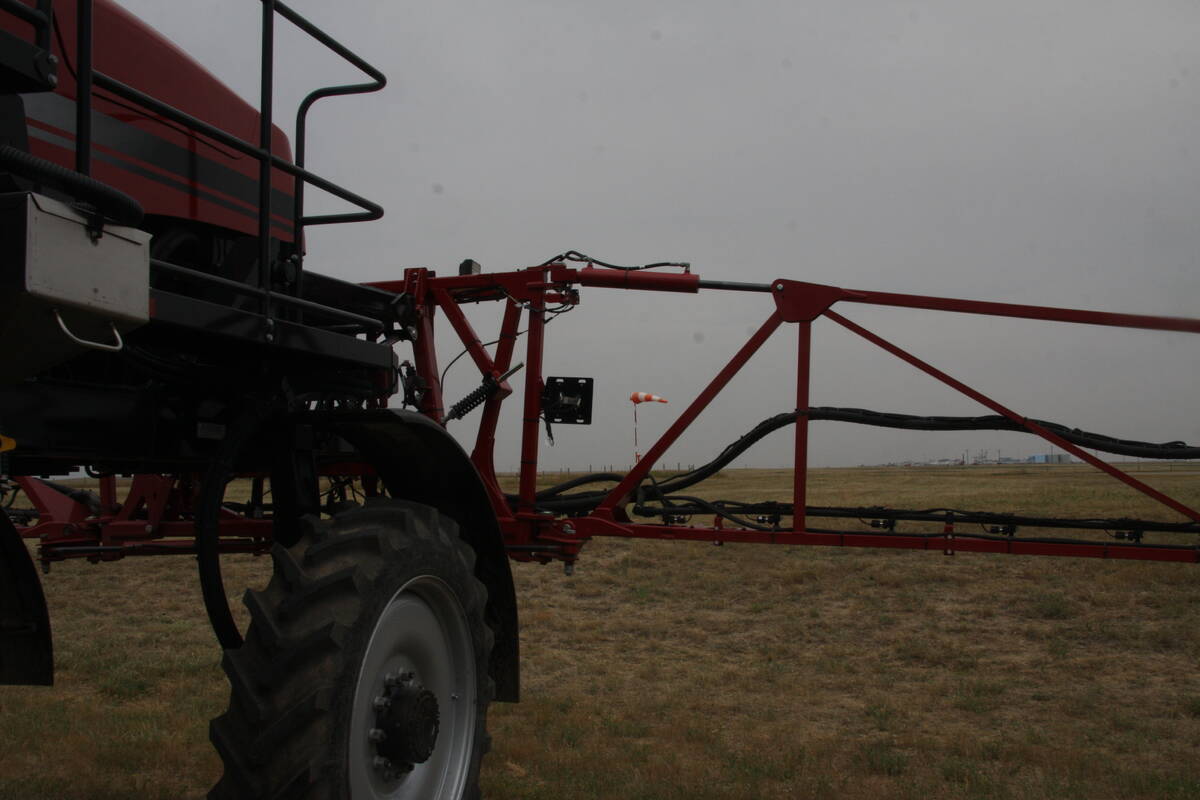An H1N1 flu outbreak among Alberta hogs shows the importance of a strong organization to speak for the industry and help during times of crisis, says an Alberta hog producer.
“I’m very thankful to have Alberta Pork working for the industry at this time,” said John Middel of Rocky Mountain House, who is worried about what will happen to the industry when a refundable checkoff is implemented in 2010.
“To me it’s so clear of the importance of having an organization speaking on your behalf and getting out the right message.”
Read Also

More work wanted on removing red tape
REGINA — Canadian farmers risk falling further behind competitors if two main federal agencies don’t become more efficient and responsive…
Middel found himself in the public spotlight after reading a public statement from the producer who owned the farm where the flu virus was found. He said the discovery of H1N1, low hog prices and the government’s decision to make the checkoff refundable are taking its toll.
“Today I just feel pretty deflated. I had plans to change some bins around, but why? Look at the price. I’m tired of having government support. That’s not how we want to be,” he said.
“I think in a year like this, it is so clear the importance of having an organization speaking on your behalf and advocating.”
Alberta Liberal agriculture critic Kevin Taft said he’s had several calls, e-mails and letters from producers opposed to the provincial government’s decision to make the checkoffs refundable for potatoes, pigs, lamb and beef.
“It makes you wonder what the power play is about here. Those top 40 or so feedlots are throwing their weight around with the premier,” Taft said.
“This is a case of a fracture between a few people with a lot of animals and a lot of people with a few animals.”
Taft believes the check-off change was forced by large feedlot owners who want to be rewarded for helping elect premier Ed Stelmach.
“There’s a widespread perception the big feedlot owners are extremely powerful with Ed Stelmach,” he said.
Larry Sears, a southern Alberta cattle producer, said he’s not surprised changes have been made, especially in an industry struggling to survive.
“There have been rumours and discontent for more than a year and a very aggressive effort to make it happen and ensure there were some changes. It’s not anything that’s a big surprise. When you have an industry that’s in disarray struggling for survival, you’ll see fighting from within.”
In an open letter to beef producers, Russ Pickett, chair of the Beef Industry Alliance, supported the plan.
“A refundable checkoff means that you decide where your check-off dollars go. It allows you to support the causes that you feel are important to our industry. If you want your check-off dollars to continue to go to ABP then that is your choice”
Hugh Lynch Staunton, former president of the Canadian Cattlemen’s Association, said he thinks the decision to make the checkoff refundable is a “terrible mistake.”
“Because of the concentration of checkoff going to feedlots, I think there will be a huge temptation for the bigger players to take their money and put it in their pockets,” he said.
“If they spend it on political initiatives on behalf of the cattle industry, then it will be fine, but I suspect the amount of dollars will be so big it will just be removed from the political and promotional weapons the industry needs.”
CCA president Brad Wildeman, who is also general manager of Pound-Maker Feeders, the largest feedlot in Saskatchewan, said it’s tempting during tough years to ask for a checkoff refund.
Industry support essential
Depending on the year, his feedlot pays about $100,000 in checkoff fees to the national and provincial association. While it’s tempting to write a letter and ask for the refund, Wildeman added, cattle producers need the support of a strong industry.
Sears doesn’t know if the government will consult with producers before passing the legislation at the beginning of June.
“I think they’ve talked to a lot of producers. My personal view is they’ve valued the advice they got from a minority, which is angry and radical,” Sears said.
“This bill seems to have been passed in haste and there are all sorts of details that haven’t been addressed. My fear is that at least now the province hasn’t shown the willingness to discuss the issues that haven’t been addressed. There’s no reason for me to believe they’re going to do it sensibly.”
Rod Scarlett, executive director of the Wild Rose Agricultural Producers, said his group heard little noise from producers wanting a change before the legislation was introduced.
“It’s becoming an odd habit of the government not to consult prior to introducing legislation.”
Scarlett said the legislation will create an even more fractured industry that all wants part of the check-off money.
“The result will be more farm organizations created to the detriment of all farmers, but the benefit of government,” he said. “Agriculture hasn’t figured out a way to speak with a strong voice.”
WRAP is not eligible to receive checkoffs because it is not a commodity group.
Jon Slomp, Alberta co-ordinator for the National Farmers Union, is not opposed to the bill. He said his supply managed Alberta Milk board provides a variety of services, ranging from selling milk to setting prices. When he looks at the beef checkoff, he sees none of the same services.
“Our producer organization does way more than promote product. With $13 million budget for ABP, what’s there to show for it?”
Slomp also believes Alberta Beef Producers has become an unwieldy organization that doesn’t respond to grassroots demands. Resolutions voted for at local levels are voted down during the annual meeting.
“ABP is a top heavy organization that does not respond to the cow-calf producer and it has festered for many years. I’m happy the minister has done this.”
















